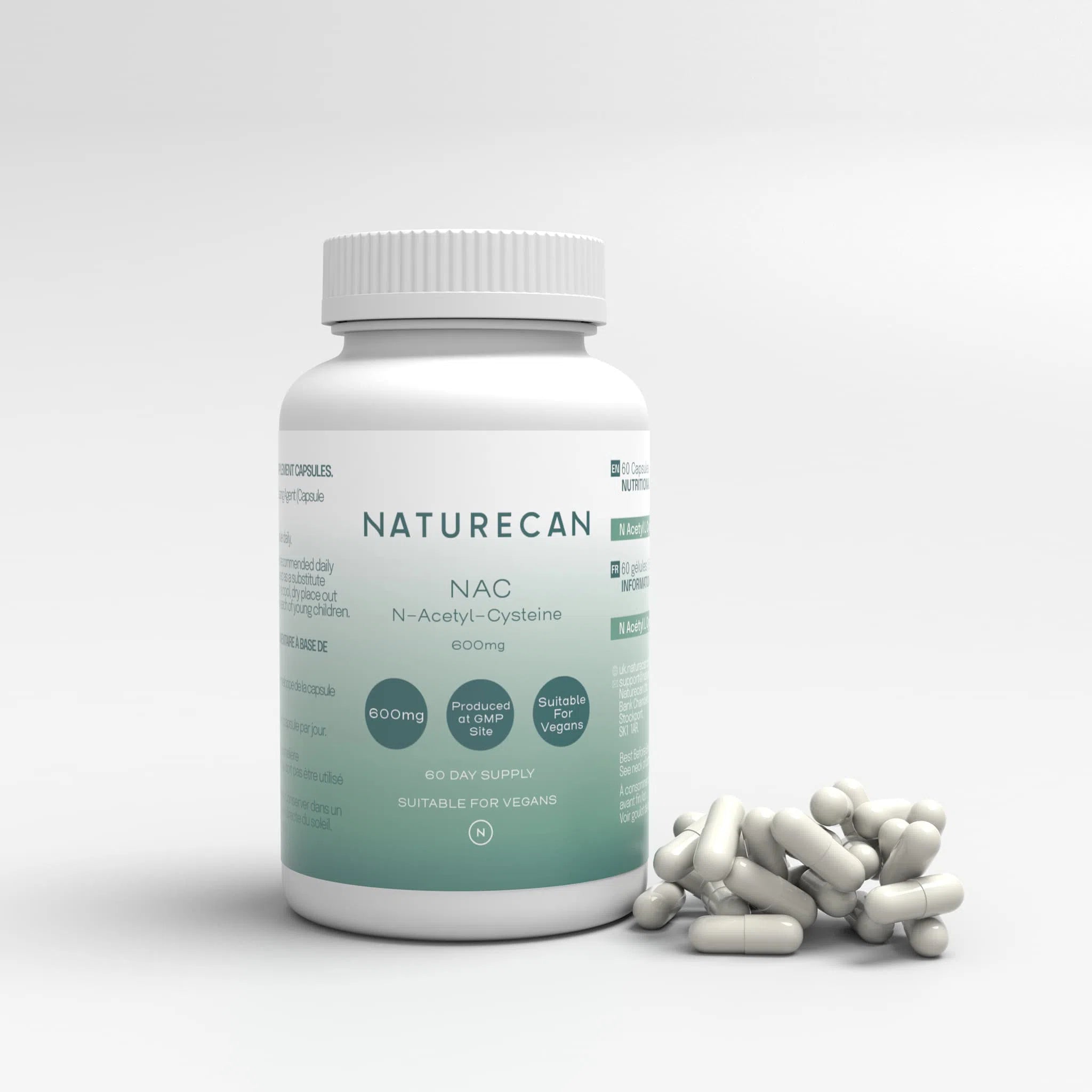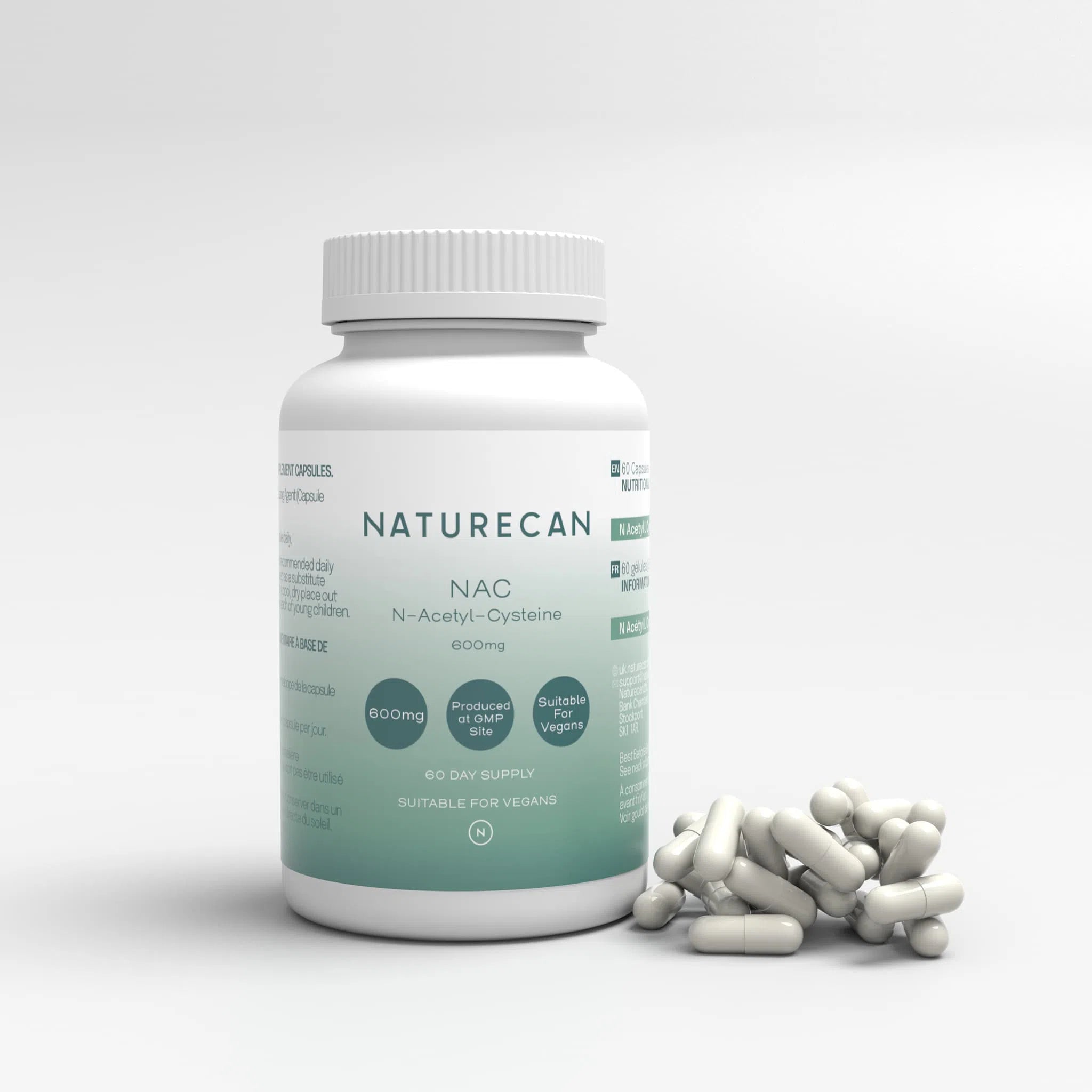Brain Health and Longevity: How to Protect Your Brain as You Age

Written by Tom Saleh & Reviewed by Paul Holmes.
As the global population ages, brain health has emerged as a critical factor in quality of life and longevity.
Cognitive health is not only essential for maintaining independence and daily functioning but also plays a pivotal role in overall physical health and life expectancy.
Let’s explore the profound link between cognitive resilience and extended lifespan, and learn why those with better cognitive function are less likely to develop chronic diseases and more likely to live longer, healthier lives.
Key highlights
- The Role of the Brain in Overall Health and the Ageing Process
- The Link Between Cognitive Health and Life Expectancy
- Common Causes of Cognitive Decline
- How to Protect Your Brain as You Age
- Nutrition for Brain Health
- Supplements That Support Brain Health
- Physical Activity and Brain Longevity
- Stress Reduction and Brain Health
Why is Brain Health Important for Longevity?
The brain is the central organ of the body, controlling not only cognitive functions like memory, decision-making, and learning but also regulating vital processes such as heart rate, breathing, and hormonal balance.
Maintaining brain health is crucial for overall well-being and longevity, as cognitive decline can profoundly impact physical health, independence, and quality of life.
The Role of the Brain in Overall Health and the Ageing Process
The brain functions as the control centre of the body, orchestrating complex physiological systems that maintain homeostasis.
As we age, brain function naturally declines due to several factors:
- Neuronal Loss: Ageing leads to a gradual reduction in the number of neurons and synapses, affecting cognitive abilities and memory.
- Reduced Plasticity: The brain's ability to adapt and reorganise (neuroplasticity) diminishes with age, slowing recovery from injury or illness.
- Chronic Inflammation: Low-grade inflammation in the brain, or neuroinflammation, can damage neurons and contribute to neurodegenerative diseases.
- Oxidative Stress: Accumulation of free radicals can damage brain cells over time, accelerating ageing and disease processes. Find out more about oxidative stress.
By preserving brain health, individuals can maintain higher levels of physical and mental function, reducing the risk of disability and extending their health span (the period of life spent in good health).
Find the best supplements to help support your brain longevity.
The Link Between Cognitive Health and Life Expectancy
Cognitive health directly influences life expectancy in several ways:
- Risk of Accidents: Cognitive decline increases the likelihood of accidents, such as falls or car crashes, which can shorten life expectancy.
- Chronic Disease Management: Impaired cognition hinders an individual’s ability to manage chronic diseases like diabetes or cardiovascular conditions, leading to complications and reduced lifespan.
- Social and Emotional Health: Cognitive health is linked to mental well-being and social engagement – both of which are associated with lower mortality rates.
Studies have shown that individuals with better cognitive health tend to have lower rates of comorbid conditions and live longer.
For instance, the Whitehall II Study1 found a correlation between cognitive performance in midlife and overall mortality, highlighting the importance of brain health as a predictor of longevity.

Neurodegenerative Diseases and Their Impact on Older Adults
Neurodegenerative diseases, such as Alzheimer’s and Parkinson’s, are among the leading causes of disability and dependency in older adults.
These conditions are characterised by the progressive loss of neurons, which leads to cognitive and motor impairments.
Alzheimer’s Disease
- More than 55 million people worldwide have Alzheimer's disease or other dementias. Alzheimer's is the most common type of dementia and is estimated to account for 60–70% of dementia cases.
- The disease significantly reduces life expectancy, with individuals often succumbing to complications such as infections or malnutrition within 8-10 years of diagnosis.
- Alzheimer’s is associated with the accumulation of beta-amyloid plaques and tau tangles in the brain, which disrupt neuronal communication and trigger cell death.
Parkinson’s Disease
- Parkinson’s affects 10 million people worldwide, primarily those over 60.
- While not directly life-threatening, Parkinson’s complications like pneumonia and falls can reduce life expectancy.
- The disease is linked to the loss of dopamine-producing neurons in the substantia nigra, leading to motor and cognitive impairments.
Vascular Dementia
- This is the second most common form of dementia and is caused by reduced blood flow to the brain.
- Vascular dementia often coexists with Alzheimer’s, compounding its effects and leading to accelerated cognitive decline.
By prioritising brain health, individuals can improve their quality of life and extend their lifespan, underscoring the integral role of the brain in ageing and overall well-being.
Learn about autophagy – the cellular process that supports brain longevity.


3 Common Causes of Cognitive Decline
1. Oxidative Stress and Inflammation
Oxidative stress occurs when there is an imbalance between the production of reactive oxygen species (ROS) and the body's ability to neutralise them with antioxidants.
In the brain, this imbalance can have particularly damaging effects due to its high metabolic demand, abundant lipid content, and relatively low antioxidant defences compared to other organs. Over time, excessive ROS can damage cellular components, including lipids, proteins, and DNA, in brain cells.
Lipid peroxidation, in particular, compromises the integrity of neuronal membranes, impairing the function of synapses and disrupting communication between neurons.
Damaged proteins may aggregate, contributing to the formation of pathological structures such as beta-amyloid plaques and tau tangles seen in Alzheimer’s disease.
DNA damage caused by oxidative stress can impair cellular repair mechanisms, leading to neuronal death and accelerating brain ageing.
Prolonged oxidative stress also activates neuroinflammatory pathways, further exacerbating damage and contributing to the development of neurodegenerative diseases.
As a result, oxidative stress is considered a key factor in the decline of brain function and the progression of conditions like Alzheimer’s and Parkinson’s diseases. A 2020 study confirmed how oxidative stress damages cellular components in neurons, leading to functional deficits and the progression of neurodegenerative diseases.
Strategies to reduce oxidative stress, such as maintaining a diet rich in antioxidants, regular exercise, and adequate sleep, are crucial for protecting brain cells and preserving cognitive health over time. Learn more about oxidative stress.

2. Poor Sleep Quality
Chronic sleep deprivation has a profound impact on cognitive health, contributing to both short-term impairments and long-term cognitive decline.
Sleep is a critical period for the brain's restorative processes, including memory consolidation, synaptic plasticity, and the removal of metabolic waste products like beta-amyloid.
When sleep is consistently insufficient, these processes are disrupted, leading to detrimental effects on brain function.
Memory and Learning Impairment: Sleep deprivation interferes with the brain's ability to consolidate memories, particularly in the hippocampus, a region critical for learning and long-term memory. This results in difficulty retaining new information and recalling past experiences.
Impaired Cognitive Function: Chronic sleep deprivation reduces attention, problem-solving abilities, and executive function. Over time, these impairments can accumulate, leading to noticeable declines in mental performance.
Increased Neuroinflammation: Lack of sleep exacerbates neuroinflammation, a process linked to the development of neurodegenerative diseases such as Alzheimer’s. Prolonged inflammation damages neurons and accelerates cognitive decline.
Accumulation of Neurotoxic Waste: During deep sleep, the brain's glymphatic system is most active, clearing toxic waste products, including beta-amyloid and tau proteins. Chronic sleep deprivation impairs this clearance, promoting the accumulation of these neurotoxic substances, which are hallmarks of Alzheimer’s disease.
Oxidative Stress and Cortisol: Sleep deprivation elevates oxidative stress in the brain, causing damage to neurons and synaptic structures, further contributing to cognitive decline over time. Similarly, cortisol can impair memory, reduce brain volume, and increase the risk of cognitive decline when chronically elevated.
Research has consistently shown that individuals who experience chronic sleep deprivation are at an increased risk of developing dementia and other neurodegenerative conditions.
A study by Xie et al. in 20133 showed that sleep deprivation disrupts the glymphatic system, impairing the clearance of beta-amyloid and tau proteins, hallmarks of Alzheimer’s disease.
Addressing sleep hygiene through consistent sleep schedules, managing stress, and seeking treatment for sleep disorders like insomnia or sleep apnea is essential for maintaining long-term cognitive health.
Ashwagandha may help improve sleep by reducing anxiety, alleviating pain, and promoting relaxation potentially enhancing overall sleep quality. Another popular supplement to improve sleep quality is melatonin.
Learn 10 healthy ways to reduce cortisol levels for better sleep.
3. Unhealthy Diets
Diets high in sugar and unhealthy fats, such as trans fats and saturated fats, can negatively impact brain function by inducing inflammation, oxidative stress, and insulin resistance, all of which disrupt neuronal health and cognitive processes.
Inflammation: Excessive sugar and unhealthy fats promote the release of pro-inflammatory cytokines in the brain, leading to neuroinflammation, which is linked to impaired memory and learning as well as an increased risk of neurodegenerative diseases. Increasing your curcumin levels can help reduce this.
Oxidative Stress: High-sugar diets can increase the production of reactive oxygen species (ROS), overwhelming the brain’s antioxidant defences and damaging neurons through oxidative stress.
Insulin Resistance: Chronic consumption of sugar-rich foods can lead to insulin resistance in the brain, impairing the uptake of glucose, the primary energy source for neurons, and contributing to cognitive deficits and a higher risk of Alzheimer’s disease (sometimes referred to as "type 3 diabetes"). From cutting out snacks to supplementing with reducose, learn ways to reduce your blood sugar.
Synaptic Plasticity: Diets high in unhealthy fats and sugar have been shown to impair synaptic plasticity, the process by which neurons strengthen or weaken their connections, which is crucial for learning and memory.
Gut-Brain Axis: These diets negatively affect the gut microbiome, altering the gut-brain axis and potentially contributing to mood disorders and cognitive dysfunction. Long-term consumption of such diets is associated with reduced hippocampal volume, poorer cognitive performance, and an increased risk of conditions like dementia and depression.

How to Protect Your Brain as You Age
Nutrition for Brain Health
Foods rich in antioxidants, omega-3 fatty acids, and brain-boosting nutrients play a vital role in protecting brain health, improving cognitive function, and reducing the risk of neurodegenerative diseases. Here’s a list of such foods:
1. Antioxidant-Rich Foods & Supplements
- Blueberries: Rich in anthocyanins, which help combat oxidative stress and inflammation, supporting brain health and memory.
- Dark Chocolate: Contains flavonoids, caffeine, and antioxidants that improve cognitive function and blood flow to the brain.
- Spinach: Packed with vitamins C and E, and beta-carotene, which protects against oxidative damage and supports brain ageing.
- Nuts (e.g., Walnuts, Almonds): High in vitamin E and polyphenols, which help reduce oxidative stress and improve memory.
- Green Tea: Rich in catechins, which have antioxidant and anti-inflammatory effects, potentially enhancing brain function and reducing neurodegenerative risks.
- NMN: This supplement supports antioxidant activity by enhancing NAD+ levels, which helps repair cellular damage and combat oxidative stress
- Resveratrol: a powerful antioxidant found in red grapes and berries that reduces oxidative stress, combats inflammation, and supports brain and cardiovascular health.

2. Omega-3 Fatty Acids
- Salmon: A top source of omega-3 fatty acids (DHA and EPA), which support cognitive function, improve memory, and protect against neurodegeneration.
- Mackerel and Sardines: Rich in omega-3s, which help promote brain health, enhance neuroplasticity, and reduce the risk of Alzheimer's disease.
- Flaxseeds and Chia Seeds: Plant-based sources of omega-3s, supporting brain structure and function.
- Walnuts: Contain alpha-linolenic acid (ALA), a plant-based omega-3, which helps maintain cognitive health and improve memory.
- Algae omega-3: Plant-based Omega-3 that delivers eicosapentaenoic acid (EPA) and docosahexaenoic acid (DHA) fatty acids in a single, quality source. This algae-derived substitute is high-quality and makes your supplementation sustainable.

3. Brain-Boosting Nutrients:
- Eggs: High in choline, a nutrient essential for neurotransmitter production, which helps with memory and mood regulation.
- Avocados: Packed with healthy monounsaturated fats and vitamin E, which support brain cell function and reduce inflammation.
- Broccoli: Contains high levels of vitamin K and antioxidants, which help protect the brain from oxidative damage.
- Turmeric: Contains curcumin, an active compound with potent anti-inflammatory and antioxidant properties that may reduce brain inflammation and improve memory.

Brain-Friendly Diets
- Mediterranean Diet: Rich in fruits, vegetables, whole grains, lean proteins (especially fish), nuts, seeds, and olive oil, the Mediterranean diet is well-known for its benefits in reducing the risk of cognitive decline. Its high content of healthy fats (like omega-3s), antioxidants, and anti-inflammatory nutrients supports brain health and reduces inflammation.
- MIND Diet: A fusion of the Mediterranean and DASH diets, the MIND (Mediterranean-DASH Diet Intervention for Neurodegenerative Delay) diet focuses specifically on foods that improve brain health and reduce the risk of Alzheimer's. Key components include leafy greens, berries, nuts, whole grains, fish, and olive oil, while emphasising the reduction of red meat, butter, and cheese.
- Plant-based diet: This diet emphasises vegetables, fruits, legumes, whole grains, nuts, seeds, and healthy plant-based fats like avocado and olive oil, which are rich in antioxidants, vitamins, and omega-3 fatty acids.
Leafy greens, berries, and cruciferous vegetables are particularly beneficial, as they are packed with compounds that reduce inflammation and oxidative stress in the brain. Foods like walnuts and flaxseeds also provide alpha-linolenic acid (ALA), a type of omega-3 crucial for brain health.
Struggling to get the nutrients you need from your diet? Discover the 10 best longevity supplements to help support your everyday wellbeing.
Supplements That Support Brain Health
Several supplements are known to potentially support brain health by addressing key aspects such as oxidative stress, inflammation, mitochondrial function, and cognitive performance. Here are some prominent ones:
1. NMN (Nicotinamide Mononucleotide)
NMN is a precursor to NAD+ (nicotinamide adenine dinucleotide), a molecule crucial for cellular energy production and mitochondrial function.
NAD+ levels decline with age, and supplementing with NMN has been shown to support brain health by enhancing cellular repair mechanisms, reducing oxidative stress, and promoting neuroplasticity.
Find out more about NMN vs NAD for the best ways to enhance cellular health.
2. NAC (N-Acetylcysteine)
NAC is a potential antioxidant that helps replenish glutathione – one of the brain’s most powerful defence mechanisms against oxidative stress.
It has neuroprotective properties, potentially reduces inflammation, and may improve cognitive function. Learn more about NAC and its potential benefits.
3. Resveratrol
Found in red wine, grapes, and berries, resveratrol is a powerful antioxidant with possible anti-inflammatory effects that may support brain function. It has been shown to improve blood flow to the brain, protect neurons from damage, and enhance synaptic plasticity.
Resveratrol activates sirtuins, proteins that regulate cellular processes linked to ageing and neuroprotection. It may also help reduce the risk of neurodegenerative diseases, such as Alzheimer's by inhibiting the accumulation of beta-amyloid plaques.Learn more about resveratrol benefits.
4. Spermidine
Spermidine is a naturally occurring polyamine found in various foods such as wheat germ, soybeans, aged cheese, and mushrooms, and has garnered attention for its potential benefits in promoting longevity and brain health.
Spermidine plays a key role in cellular processes, particularly in autophagy, the body’s mechanism for cleaning out damaged cells and regenerating new ones. This process is vital for maintaining brain health by clearing accumulated waste products and supporting neuronal function.
Learn more about the benefits of spermidine.

5. Omega-3 Fatty Acids (EPA and DHA):
Omega-3 fatty acids, particularly DHA (docosahexaenoic acid) and EPA (eicosapentaenoic acid), are critical for brain structure and function.
DHA is a major component of neuronal membranes and is essential for maintaining synaptic plasticity, cognitive function, and memory. Omega-3s also have anti-inflammatory and antioxidant effects, which help protect the brain from age-related cognitive decline and neurodegenerative diseases.
Supplementing with omega-3s has been shown to potentially improve mood, memory, and overall cognitive performance.
Physical Activity and Brain Longevity
Regular exercise is one of the most effective ways to enhance brain health, primarily through its ability to increase blood flow to the brain and stimulate neurogenesis – the process by which new neurons are formed. Here's how exercise contributes to both of these mechanisms:
1. Improved Blood Flow to the Brain
- Increased Cardiovascular Efficiency: Exercise improves cardiovascular health by strengthening the heart and increasing the efficiency of the circulatory system. As a result, there is better blood flow throughout the body, including to the brain.
Enhanced blood flow means more oxygen and nutrients are delivered to brain cells, which is crucial for maintaining healthy brain function and cognitive performance. - Vascular Growth (Angiogenesis): Exercise stimulates the formation of new blood vessels in the brain, a process known as angiogenesis. This increase in the density of blood vessels improves the delivery of oxygen, glucose, and other nutrients to brain tissue, supporting its function and aiding in repair and regeneration after injury or age-related decline.
Enhanced Brain Plasticity: Increased blood flow also promotes neuroplasticity – the brain's ability to form new connections between neurons, which is important for learning, memory, and cognitive adaptation.

2. Promotion of Neurogenesis
- Activation of Growth Factors: Regular physical activity, especially aerobic exercises such as running, cycling, or swimming, boosts the production of brain-derived neurotrophic factor (BDNF), a key protein that supports neurogenesis. BDNF encourages the growth of new neurons in areas of the brain involved in memory and learning, such as the hippocampus.
- Increased Hippocampal Volume: Exercise can increase the volume of the hippocampus – the region of the brain responsible for memory formation and spatial navigation. Regular exercise has been linked to the generation of new neurons in this area, enhancing cognitive abilities and potentially slowing down age-related cognitive decline.
- Reduction of Stress Hormones: Exercise helps lower levels of cortisol, a stress hormone that can impair neurogenesis and promote neuronal damage. By reducing stress, exercise creates a more favourable environment for the growth of new brain cells.

3. Cognitive Benefits
- Enhanced Learning and Memory: The combination of increased blood flow and neurogenesis supports cognitive functions such as learning, memory, and decision-making.
Studies have shown that people who engage in regular physical activity have improved memory, attention, and problem-solving skills, and are at lower risk for cognitive decline and neurodegenerative diseases like Alzheimer's.

Mood Regulation:
Exercise also has a positive effect on mental health, increasing the release of neurotransmitters like serotonin and dopamine, which contribute to better mood and reduced anxiety.
These mood-enhancing effects further support cognitive function and well-being.
Mental Exercises for Cognitive Function
Mental exercises are a powerful way to maintain and improve cognitive function as they challenge the brain and promote neuroplasticity—the brain's ability to reorganize and form new neural connections. Here are some effective brain-training activities that can help boost memory, problem-solving, attention, and overall cognitive health:
1. Puzzles
- Crossword Puzzles: These help improve vocabulary, problem-solving skills, and memory. Solving crosswords engages multiple areas of the brain, especially those related to language and recall.
- Sudoku: A number puzzle that promotes logical thinking, pattern recognition, and attention to detail. Regularly practising Sudoku can enhance working memory, cognitive flexibility, and concentration.
- Jigsaw Puzzles: Assembling jigsaw puzzles boosts visual-spatial reasoning and attention to detail. This type of puzzle also helps improve short-term memory and hand-eye coordination.

2. Memory Games
- Matching Games: These games, where players match pairs of cards or items, help enhance memory, attention, and concentration. They can be played using physical cards or digitally on apps.
- Recall Exercises: Regularly practising recall of lists or stories helps strengthen working memory. For example, try remembering a series of words or numbers and then recalling them after a few minutes or hours.
- Mnemonic Techniques: Using mnemonic devices, such as acronyms or visualization, can help improve the ability to remember and retrieve information more efficiently.

3. Learning New Skills
- Learning a New Language: Studying a foreign language is one of the most effective ways to enhance brain function. It challenges memory, cognitive flexibility, and processing speed while increasing the capacity for learning.
- Musical Instrument Practice: Learning to play an instrument stimulates both sides of the brain, improving memory, focus, and coordination. It also fosters creativity and problem-solving skills.
- Art and Craft Activities: Engaging in creative activities like drawing, painting, or knitting not only provides relaxation but also enhances motor skills, spatial awareness, and cognitive processing.

4. Problem-Solving Games
- Strategy Games: Playing games that require strategic thinking improves executive function, planning, and decision-making abilities. Chess, for example, helps with attention, problem-solving, and long-term memory.
- Brain-Training Apps: Apps like Lumosity, Peak, or Elevate offer a wide range of games designed to improve various aspects of cognitive function, including memory, attention, processing speed, and problem-solving.

Stress Reduction and Brain Health
Chronic stress has a significant negative impact on cognitive function, contributing to the acceleration of cognitive decline and increasing the risk of neurodegenerative diseases like Alzheimer's and Parkinson's.
The relationship between stress and cognitive decline is complex and involves various mechanisms which we have already explored, but another major factor is the prolonged release of stress hormones.
When the body experiences stress, it triggers the release of cortisol, a hormone produced by the adrenal glands. Acute stress activates the body’s fight-or-flight response, but chronic stress leads to sustained, elevated cortisol levels, which can have detrimental effects on the brain.
Prolonged exposure to cortisol can impair the function of the hippocampus, a brain region crucial for memory formation and emotional regulation.
Hippocampal Shrinkage
Chronic stress has been linked to structural changes in the hippocampus, including atrophy (shrinkage). This shrinkage can reduce the brain's ability to form new memories, process information, and regulate emotions, contributing to cognitive decline.
Studies have shown that individuals with prolonged high cortisol levels may experience a reduction in hippocampal volume, which is associated with memory impairment and an increased risk of cognitive disorders.
Sleep and Its Impact on Brain Health
Restorative sleep is critical for brain health and memory consolidation because it is during deep sleep (particularly during slow-wave sleep and REM sleep) that the brain carries out essential processes like clearing metabolic waste, repairing damaged cells, and consolidating new information.
During these stages, memories are transferred from short-term storage in the hippocampus to long-term storage in the cortex, enhancing learning and recall.
Additionally, restorative sleep helps regulate the production of hormones and neurotransmitters, which are vital for mood stability, cognitive function, and overall brain health.
Without sufficient restorative sleep, cognitive performance deteriorates, memory becomes impaired, and the brain is more vulnerable to neurodegenerative conditions.
To improve sleep quality, consider the following tips:
- Maintain a Consistent Sleep Schedule: Go to bed and wake up at the same time each day, even on weekends, to regulate your body’s internal clock and improve the consistency of your sleep patterns.
- Reduce Screen Time Before Bed: The blue light emitted by phones, tablets, and computers can interfere with melatonin production, making it harder to fall asleep. Aim to avoid screens for at least 30-60 minutes before bedtime.
- Create a Relaxing Bedtime Routine: Engage in calming activities such as reading, taking a warm bath, or practising relaxation techniques like meditation to signal to your brain that it’s time to wind down.
- Limit Caffeine and Alcohol Intake: Avoid consuming caffeine or alcohol in the late afternoon or evening, as they can disrupt sleep cycles and reduce sleep quality.
- Ensure a Comfortable Sleep Environment: Make sure your bedroom is conducive to sleep by keeping it cool, dark, and quiet. Consider investing in a supportive mattress and pillows to enhance comfort.
By prioritising restorative sleep and adopting healthy sleep habits, you can significantly enhance brain health, memory consolidation, and cognitive function. Learn when’s best to take magnesium for a better night’s sleep.
Warning Signs of Cognitive Decline
Cognitive decline can manifest in various ways, especially in the early stages. Recognizing these signs early can help in seeking timely intervention and support.
Common early indicators of cognitive issues include:
Memory Loss
- Frequently forgetting recent events, appointments, or names.
- Misplacing everyday items (e.g., keys, wallet) and having trouble retracing steps to find them.
- Difficulty remembering familiar words or conversations.
- Repeatedly asking the same questions or telling the same stories.
Confusion
- Getting lost in familiar places or forgetting how to perform routine tasks (e.g., cooking a familiar meal or driving to a usual destination).
- Feeling disoriented about time or date, especially in unfamiliar or new environments.
- Difficulty following or understanding simple instructions or conversations.
- Loss of spatial awareness (e.g., misjudging distances or losing balance).
Difficulty Concentrating
- Trouble focusing on tasks for an extended period.
- Inability to complete simple tasks without being distracted.
- Difficulty organising thoughts or keeping track of personal or work-related activities.
- Feeling overwhelmed or easily distracted by external stimuli, such as background noise.
Mood and Behavioral Changes
- Increased irritability or emotional instability, especially in situations that wouldn't have elicited such reactions before.
- Withdrawal from social interactions or a decline in participation in activities once enjoyed.
- Apathy or a lack of interest in personal care or responsibilities.
- Unexplained mood swings, anxiety, or depression.
Language and Communication Issues
- Struggling to find the right words or using incorrect words in conversation.
- Difficulty following conversations or losing track of the topic.
- Repetition of questions or phrases during conversations.
Impaired Judgment and Decision-Making
- Making poor decisions or engaging in risky behaviours (e.g. poor financial decisions or neglecting self-care).
- A decline in problem-solving abilities or difficulty with planning or organising.
- Reduced ability to recognise and respond to personal safety concerns.
When to Seek Medical Advice for Cognitive Health Concerns
While some minor memory lapses or forgetfulness can be a normal part of ageing, significant or persistent changes in cognitive function should not be ignored. It's important to speak to a doctor when:
- Cognitive Changes Affect Daily Life
If memory loss, confusion, or difficulty concentrating start to interfere with daily activities, such as work, relationships, or self-care.
If these issues worsen over time rather than staying stable or improving. - New or Unexplained Symptoms Appear
If there is a sudden onset of confusion, disorientation, or significant memory lapses that seem out of character for you.
If cognitive symptoms occur alongside other physical changes, such as unexplained weight loss, vision or speech problems, or motor difficulties. - When Mood or Behavioral Changes are Present
If mood swings, depression, irritability, or social withdrawal occur in conjunction with cognitive decline.
If there are noticeable changes in personality or behaviour that seem unexplainable. - Difficulty with Basic Tasks
If there is a decline in the ability to perform everyday tasks, like cooking, managing finances, or following directions.
If previously learned skills become difficult or impossible to carry out.

Introducing Naturecan Brain Health supplements
Conclusion
Let’s recap the 5 key things to focus on to help protect your brain as you age:
- Balanced Nutrition: Consume a brain-healthy diet rich in antioxidants, omega-3 fatty acids, and essential nutrients (e.g., fruits, vegetables, fish, and nuts) to support cognitive function and reduce the risk of neurodegenerative diseases.
- Regular Exercise: Engage in physical activity to enhance blood flow to the brain, promote neurogenesis, and improve memory, focus, and overall cognitive function.
- Quality Sleep: Prioritize restorative sleep to support memory consolidation, brain detoxification, and emotional regulation, which are essential for long-term brain health.
- Stress Management: Reduce chronic stress through relaxation techniques, mindfulness, and social connections to protect the brain from inflammation and oxidative damage.
- Mental Stimulation: Challenge the brain with activities like puzzles, learning new skills, and problem-solving to boost cognitive function, maintain neuroplasticity, and prevent cognitive decline.
Adopting these brain-friendly habits can help preserve cognitive function and promote long-term well-being, supporting a vibrant, healthy brain throughout life.
Learn about biohacking to help to improve your health and longevity.

10 Best Longevity and Anti-Ageing Supplements
Discover the top 10 supplements to support your health and longevity!
Read Article
What Supplements Does Andrew Huberman Recommend?
Read now to learn the supplements that Prof. Huberman recommends!
Read Article
8 ways: how to boost your immune system
Want to enhance your immune system naturally, read our comprehensive guide!
Read Article
















































